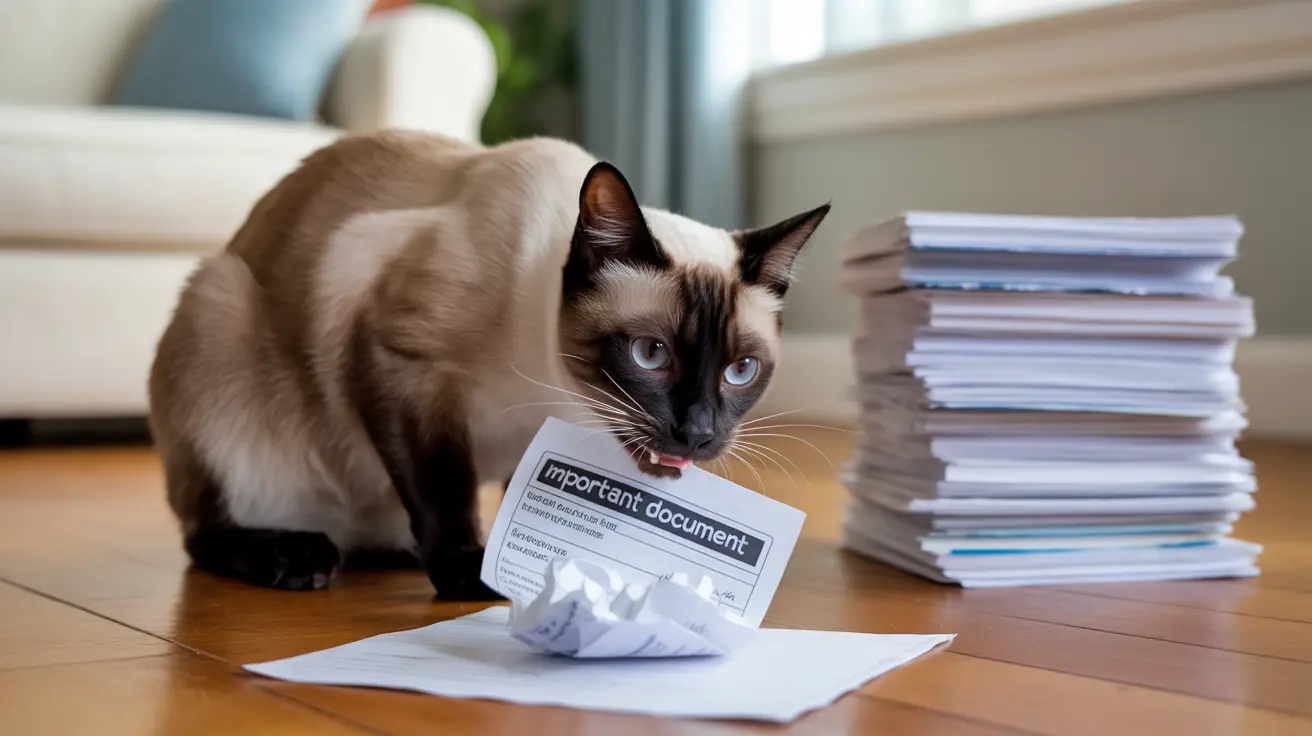If you’ve ever caught your cat munching on paper or cardboard, you’re not alone. Many cat owners are puzzled by their feline friends’ fascination with eating paper products. This behavior, while common, can range from harmless exploration to a sign of underlying health issues. Let’s explore why cats engage in this peculiar habit and what it might mean for your pet’s wellbeing.
Understanding why cats eat paper is crucial for ensuring your pet’s safety and health. While some cats may simply enjoy the texture or sound of paper, others might be displaying symptoms of more serious conditions that require veterinary attention.
Common Reasons Behind Paper-Eating Behavior
Natural Exploration and Play
Cats, especially kittens and young adults, naturally explore their environment through taste and texture. Paper products often provide an interesting sensory experience, with their crinkly sounds and varied textures making them particularly appealing to curious felines.
Behavioral and Psychological Factors
Many cats turn to paper-eating due to behavioral reasons such as:
- Boredom or lack of environmental enrichment
- Stress or anxiety
- Attention-seeking behavior
- Learned habits from kittenhood
Medical Conditions and Pica
Sometimes, paper-eating can be a symptom of pica, a condition where cats compulsively eat non-food items. This behavior might be linked to various medical conditions, including:
- Nutritional deficiencies
- Dental problems
- Gastrointestinal issues
- Hyperthyroidism
- Diabetes
Health Risks of Paper Consumption
When cats eat paper, they face several potential health risks:
- Intestinal blockages requiring surgery
- Exposure to harmful chemicals in treated paper
- Choking hazards
- Damage to the digestive system
Prevention and Management Strategies
Environmental Enrichment
Provide your cat with appropriate alternatives and enrichment:
- Interactive toys and puzzle feeders
- Regular play sessions
- Climbing structures and scratching posts
- Cat-safe plants for chewing
Safe Storage Practices
Protect your cat by:
- Keeping important papers in closed drawers or cabinets
- Disposing of paper waste promptly
- Using covered trash bins
- Providing appropriate chew toys
When to Seek Veterinary Care
Consult your veterinarian if you notice:
- Frequent paper consumption
- Changes in appetite or weight
- Vomiting or diarrhea
- Lethargy or behavioral changes
- Signs of intestinal obstruction
Frequently Asked Questions
Why do cats chew or eat paper and cardboard?
Cats may chew or eat paper due to various reasons, including natural exploration, boredom, anxiety, or underlying medical conditions. Some cats simply enjoy the texture and sound of paper products, while others might be displaying symptoms of pica or nutritional deficiencies.
Could my cat eating paper be a sign of a medical or dental problem?
Yes, paper eating can indicate several medical issues, including dental problems, gastrointestinal disorders, or nutritional deficiencies. If your cat frequently eats paper, consult with your veterinarian to rule out underlying health concerns.
What is pica in cats, and how does it cause them to eat non-food items like paper?
Pica is a behavioral condition where cats compulsively eat non-food items. It can be caused by medical issues, stress, or genetic predisposition. In cats with pica, paper becomes one of many non-food items they might consume.
How can I safely stop my cat from chewing or ingesting paper to prevent health risks?
To prevent paper eating, remove accessible paper products, provide environmental enrichment, ensure proper nutrition, and address any underlying stress or medical issues. Regular play and interactive toys can help redirect your cat’s attention from paper.
Are certain cat breeds more prone to eating paper or displaying pica behaviors?
Yes, Oriental breeds like Siamese and Burmese cats are more prone to pica behaviors, including paper eating. However, any cat breed can develop this behavior due to environmental or health factors.
Remember, while paper-eating behavior might seem harmless, it’s essential to monitor your cat’s habits and consult with a veterinarian if the behavior becomes frequent or concerning. With proper attention and care, you can help protect your feline friend from the potential dangers of paper consumption while ensuring their environmental and emotional needs are met.






